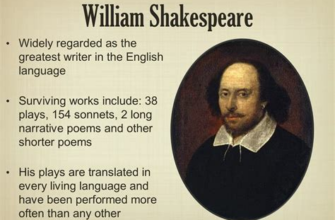Prepare to embark on a captivating journey through the extraordinary life and profound achievements of one of history's most renowned figures, the brilliant mind of Galileo Galilei. Immerse yourself in the mesmerizing world of this legendary Italian mathematician, astronomer, and physicist who forever shaped our understanding of the universe.
Elevating scientific inquiry to unprecedented heights, Galileo fearlessly challenged prevailing beliefs, expanding the boundaries of human knowledge in an era of intellectual curiosity and exploration. His relentless pursuit of truth and unwavering dedication to the scientific method laid the foundation for modern experimental science, revolutionizing our perception of the natural world.
Unleashing a wave of groundbreaking discoveries, Galileo's numerous accomplishments forever transformed our understanding of motion, gravity, and the cosmos. His ingenious use of telescopes shattered existing paradigms, as he documented the craters of the moon, the moons of Jupiter, and the phases of Venus, providing irrefutable evidence for the heliocentric model of our solar system.
Galileo Galilei's Early Life and Education

Exploring the formative years of one of history's most influential figures in science and astronomy, this section delves into the early life and education of Galileo Galilei. Gain insight into the upbringing and educational journey that shaped Galileo's remarkable intellect and laid the foundation for his groundbreaking discoveries.
A Curious Mind and Unconventional Upbringing
Galileo Galilei was born in Pisa, Italy, in 1564, into a family that valued education and intellectual inquiry. As a young child, Galileo displayed a natural curiosity and eagerness to understand the workings of the world around him. Growing up in a time when societal norms and traditional teachings were challenged, he was exposed to unconventional ideas that would shape his future endeavors.
Academic Pursuits and the Study of Mathematics
Recognizing Galileo's exceptional aptitude for knowledge, his parents enrolled him in the University of Pisa, where he began his academic journey. While initially studying medicine, Galileo's true passion for mathematics soon emerged. He voraciously delved into the works of ancient scholars such as Euclid and Archimedes, gaining a deep understanding of geometry and mathematical principles that would influence his later scientific endeavors.
A Revolutionary Shift to the Study of Physics
Despite his initial foray into mathematics, Galileo's thirst for knowledge led him to explore the realm of physics. Rejecting the traditional teachings of Aristotle, he embarked on a quest to challenge prevailing beliefs and develop his own theories. It was during this time that Galileo began conducting experiments and making careful observations that would ultimately revolutionize our understanding of the natural world.
Impacted by the Intellectual Renaissance
Galileo Galilei was fortunate to live during the Enlightenment era, a time characterized by significant advancements in various fields of knowledge. The intellectual revolution that swept across Europe profoundly influenced Galileo's early education, exposing him to groundbreaking works and leading scientific thinkers of his time. This exposure sparked his insatiable thirst for knowledge and ignited a lifelong pursuit of truth through empirical research.
In the next sections, we will delve deeper into Galileo's achievements, his groundbreaking contributions to astronomy, and the controversies he faced during his quest for scientific truth.
Understanding Galileo's Childhood and Early Education
Exploring the formative years of one of history's most renowned minds, this section delves into the captivating details surrounding the upbringing and educational experiences that shaped Galileo Galilei. It unravels the early influences and experiences that contributed to his development as a pioneering scientist and thinker.
To grasp the essence of Galileo's childhood, it is essential to appreciate the environment in which he was raised. Growing up in Renaissance Italy, amidst a period of immense cultural and intellectual growth, Galileo was exposed to a wealth of artistic, scientific, and philosophical advancements. These intellectual currents, coupled with his family's support and encouragement, laid the foundation for his inquisitive nature and thirst for knowledge.
As for his education, Galileo's early years were marked by rigorous academic training. Attending the Benedictine monastery school in Vallombrosa, he received a comprehensive education in humanities, Latin, mathematics, and natural sciences. Embracing his studies with fervor, Galileo soon surpassed his peers, displaying a remarkable aptitude for mathematics and a keen interest in physics and astronomy.
The next phase of Galileo's education unfolded at the University of Pisa, where he initially pursued medicine. However, his innate curiosity and passion for the stars soon steered him towards the realms of mathematics and physics. It was during this time that Galileo's groundbreaking experiments and observations took flight, setting the stage for his future discoveries and scientific method.
To gain a deeper understanding of Galileo's childhood and early education, it is imperative to explore the influential figures and books that shaped his intellectual development. From the likes of Plato and Archimedes to the influential works of Copernicus and Kepler, Galileo drew inspiration from a rich tapestry of thought and knowledge. This section unveils the pivotal moments and educational milestones that set the course for Galileo's remarkable journey as a scientist and innovator.
- The Renaissance intellectual atmosphere of Italy during Galileo's formative years
- Influential figures and books that influenced Galileo's intellectual development
- The Benedictine monastery school and its impact on Galileo's early education
- The transition from medicine to mathematics and physics at the University of Pisa
- The birth of Galileo's experiments and observations
By diving into Galileo's childhood and early education, we can uncover the roots of his unwavering curiosity, his relentless pursuit of knowledge, and the resilience that fueled his groundbreaking discoveries.
Galileo's Contributions to Astronomy

In the realm of celestial studies, Galileo Galilei made significant advancements that revolutionized the field of astronomy. His remarkable findings and discoveries forever altered our understanding of the cosmos and paved the way for future scientific exploration.
Galileo's astute observations and meticulous documentation played a pivotal role in debunking the long-held belief that the Earth stood at the center of the universe, known as the geocentric model. Through the use of telescopes, he observed celestial bodies such as the Moon, planets like Jupiter and Saturn, and various stars, uncovering evidence that supported the heliocentric model proposed by Nicolaus Copernicus.
One of Galileo's groundbreaking achievements was his discovery of the four largest moons of Jupiter, now known as the Galilean moons. By carefully studying their movements and recording their positions, he provided compelling evidence that not all celestial bodies orbited the Earth, further challenging the geocentric viewpoint.
Galileo's influential work also extended to the study of planetary motion. He observed the phases of Venus, which helped confirm the Copernican model, demonstrating that Venus, like the Moon, experienced phases due to its orbit around the Sun. These observations were a significant departure from the prevailing perception of planets as unchanging points of light in the night sky.
Furthermore, Galileo made significant contributions to the field of optics. He refined the design of telescopes, achieving greater magnification and enhancing their capabilities. Through his improved lenses, Galileo observed celestial objects with remarkable detail, enabling him to make groundbreaking discoveries and further challenge the prevailing scientific beliefs of his time.
In conclusion, Galileo Galilei's contributions to astronomy were nothing short of extraordinary. His astute observations, pioneering experiments, and unwavering dedication to scientific inquiry paved the way for a new era of planetary understanding, forever changing the course of human knowledge about the cosmos.
Exploring Galileo's Observations and Discoveries in Astronomy
In this section, we will delve into the remarkable insights and breakthroughs that Galileo Galilei made in the field of astronomy. Through meticulous observations and groundbreaking discoveries, Galileo revolutionized our understanding of the universe.
Galileo's exploration of the skies led to the revelation that celestial bodies, such as the moon and the planets, were not perfect spheres as previously believed, but rather had irregular surfaces and distinct features. His observations shattered the prevailing notion that the heavens were composed of ethereal, unchanging bodies and revealed a universe full of variety and complexity.
One of Galileo's most significant contributions to astronomy was his use of the telescope. By improving upon existing designs, Galileo was able to enhance the clarity and magnification of his observations. Through his telescope, he discovered the four largest moons of Jupiter, known as the Galilean moons – Io, Europa, Ganymede, and Callisto. This groundbreaking finding demonstrated that celestial bodies could orbit something other than the Earth, challenging the geocentric model of the universe.
Galileo's observations of the moon also paved the way for a greater understanding of lunar topography. He observed mountains, valleys, and craters on the lunar surface, providing evidence for a dynamic and changing celestial body. These observations contradicted the prevailing belief that the moon was a perfectly smooth and unblemished sphere.
Furthermore, Galileo made significant contributions to our understanding of the phases of Venus. His observations revealed that Venus exhibited a complete set of phases, similar to those of the moon. This observation provided strong evidence to support the heliocentric model of the solar system, where the planets revolve around the sun.
Overall, Galileo Galilei's observations and discoveries revolutionized astronomy by challenging existing beliefs and providing evidence for a more accurate understanding of the universe. Through his precise observations and improvements to the telescope, Galileo paved the way for future advancements in astronomy and forever changed our perception of the cosmos.
Galileo's Groundbreaking Invention: The Ocular Instrument

In this section, we delve into one of Galileo Galilei's most renowned achievements – his invention of the revolutionary ocular instrument. Through the ingenious melding of various lenses and mirrors, Galileo crafted a device that would forever change our perception of the heavens above.
- Galileo's quest for a new method of observation led him to experiment with lenses and mirrors.
- Combining his knowledge of optics with his exceptional craftsmanship, Galileo designed a groundbreaking instrument capable of magnifying distant celestial bodies.
- The telescope, as it came to be known, enabled Galileo to observe the moon's craters, the phases of Venus, the satellites of Jupiter, and countless other astronomical wonders previously invisible to the naked eye.
- Through meticulous refinement and improvement of his instrument, Galileo achieved unprecedented magnification, eventually reaching a power of 30x.
- Galileo's invention quickly gained widespread recognition, captivating the scientific community of his time and forever altering our understanding of the cosmos.
- Fueled by his newfound ability to observe celestial bodies with unparalleled detail, Galileo proceeded to challenge long-standing celestial theories and expand the boundaries of human knowledge.
- The telescope, conceived by Galileo, became a catalyst for the Scientific Revolution, paving the way for future discoveries and advancements in the field of astronomy.
This section serves as a testament to Galileo's brilliance in harnessing the power of optics to unlock the secrets of the universe and forever shape the course of scientific inquiry.
Examining Galileo's Revolutionary Invention and Its Profound Impact on the Field of Science
Exploring the Revolutionary Breakthrough by Galileo and its Enduring Influence on Scientific Advancement
The Revolutionary Invention by Galileo:
Galileo Galilei, the pioneering Italian scientist and mathematician, introduced a groundbreaking device that forever transformed the way we observe and understand the natural world. This innovation, which Galileo ingeniously crafted, marked a pivotal turning point in the history of science.
Examining the Impact:
The invention not only revolutionized astronomy but also had far-reaching implications across various scientific disciplines. By enabling precise observations of celestial bodies, Galileo's invention provided empirical evidence to challenge prevailing beliefs and theories. This subsequently led to significant advancements in fields such as physics, mathematics, and even philosophy.
Transforming Astronomy:
Galileo's revolutionary invention allowed for a more accurate and detailed exploration of the celestial realm. Through meticulous observations using his device, he made remarkable discoveries and put forth irrefutable evidence that supported the heliocentric model proposed by Nicolaus Copernicus in the 16th century. Challenging the deeply-rooted geocentric view, Galileo's findings expanded human understanding of the universe and laid the groundwork for modern astronomy.
The Influence on Scientific Methodology:
Galileo's invention, combined with his relentless pursuit of knowledge, prompted a shift in scientific methodology. By emphasizing empirical evidence and experimentation, he challenged the reliance on classical authorities and embraced observation as the foundation of scientific exploration. This transformative approach shaped the way scientists approach research and investigation even today.
Legacy and Ongoing Significance:
The impact of Galileo's invention and his scientific contributions has left an indelible mark on the course of human progress. His courage to challenge prevailing beliefs and dedication to empirical evidence paved the way for countless scientific breakthroughs that followed. Galileo's unwavering pursuit of Truth and the scientific method continues to inspire generations of scientists and serves as a reminder of the immense power of curiosity and discovery.
Galileo's Clash with the Catholic Church

The Conflict between Galileo Galilei and the Catholic Church remains a significant episode in the history of science and religion.
Galileo's disagreements with the Catholic Church arose from his revolutionary observations, which challenged the Church's long-standing beliefs. In his pursuit of scientific truth and a deeper understanding of the natural world, Galileo encountered opposition from religious authorities who saw his ideas as conflicting with their established doctrines.
The conflicts between Galileo and the Catholic Church focused primarily on his support of Copernican heliocentrism, a theory that placed the Sun at the center of the universe instead of the Earth. This contradicted the Church's geocentric view, which held that the Earth was the center of the universe and everything revolved around it. Galileo's observations using the telescope provided evidence in support of heliocentrism, which challenged the Church's interpretation of biblical passages.
As Galileo continued to gather evidence and publicly advocate for heliocentrism, the Church viewed his teachings as heretical and threatening to its authority. In 1616, the Church formally prohibited the teaching and spreading of Copernicanism, warning Galileo to abandon his views. However, he persisted in his research and in 1632 published a book, Dialogue Concerning the Two Chief World Systems, presenting arguments for heliocentrism. The book was met with strong opposition from the Church, leading to Galileo's trial and subsequent condemnation in 1633.
Galileo's clash with the Catholic Church not only had significant consequences for his personal life, but it also had wider implications for the relationship between science and religion. The episode highlighted the challenges faced by those who sought to reconcile scientific discoveries with religious dogma, and it underscored the importance of intellectual freedom and the acceptance of new ideas in scientific progress.
FAQ
Who was Galileo Galilei?
Galileo Galilei was an Italian astronomer, physicist, and mathematician who made significant contributions to the scientific revolution during the 16th and 17th centuries.
What were Galileo Galilei's greatest achievements?
Galileo Galilei made several groundbreaking achievements, including the improvement of the telescope, discovery of the four largest moons of Jupiter, formulation of the laws of motion, and supporting heliocentrism.
How did Galileo Galilei contribute to the development of astronomy?
Galileo Galilei played a crucial role in the development of astronomy by observing celestial objects using his telescopes, discovering evidence to support the heliocentric model of the solar system, and documenting his findings, which later shaped the scientific understanding of the universe.
What were the challenges faced by Galileo Galilei in his scientific endeavors?
Galileo Galilei faced numerous challenges, especially from the Catholic Church, which opposed his heliocentric model and accused him of heresy. He was put on trial by the Inquisition and forced to recant his beliefs under the threat of imprisonment.
How did Galileo Galilei's work impact future scientific advancements?
Galileo Galilei's work had a profound impact on future scientific advancements by establishing a foundation for the scientific method, challenging traditional beliefs, and inspiring generations of scientists to question and explore the natural world.
What were Galileo Galilei's major achievements?
Galileo Galilei had several major achievements. He improved the telescope, discovering many celestial bodies such as the four largest moons of Jupiter. He also made significant contributions to the fields of physics and mechanics, formulating the basic principles of inertia and the law of falling bodies. Additionally, Galileo's observations and experiments supported the heliocentric theory, challenging the prevailing geocentric model of the universe.



